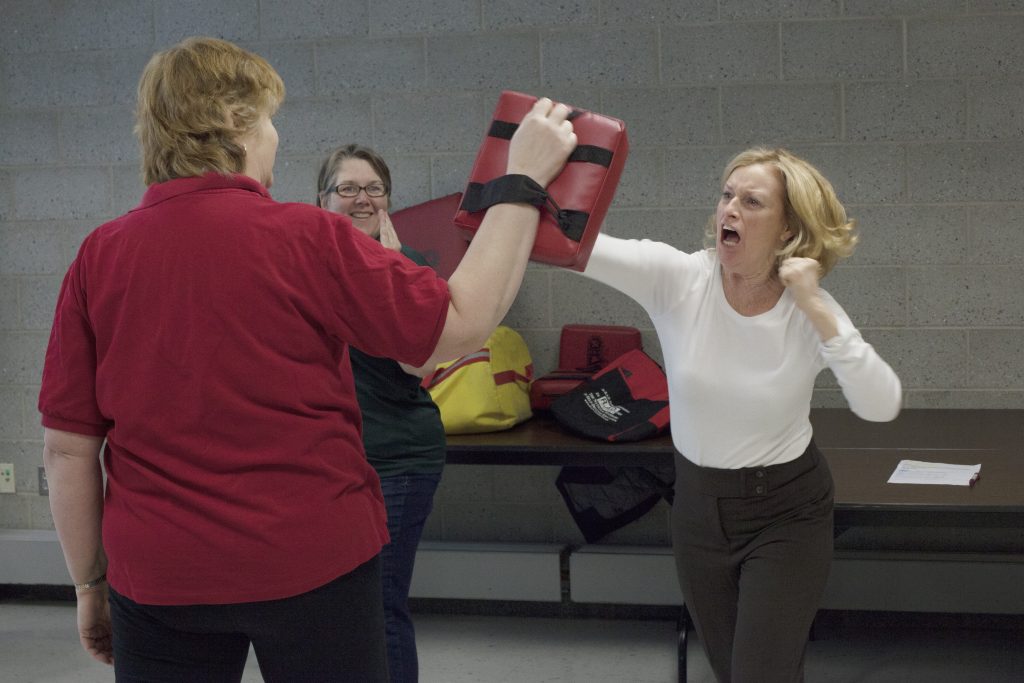
Madeline Bay, the deputy chief of police at the Binghamton University Police Department, gave safety tips to faculty and staff on Monday about how to react in life-threatening situations, as well as how to use different self-defense tactics to prevent assaults.
The class was sponsored by the University Center for Training and Development, which exists to provide support and training for faculty and staff. It was open to anyone and is part of a series of events sponsored by different departments and offices on campus throughout the school year, such as the Residential Life Office.
Bay began the session by preaching basic safety tactics, such as locking your car as soon as you get inside your vehicle. She also said it’s important to let people know where you are just in case something happens to you.
She went on to discuss various self-defense tactics and stated that there are three weapons anyone can use at any time: your brain, voice and body. It’s important to rely on your brain, according to Bay, because you have to be aware of your surroundings and trust your instincts.
“When it comes to self-defense, 90 percent of it is brain work,” Bay said. “Your brain is going to be your No. 1 weapon.”
She said that using your voice, by shouting “no” or “help,” is also important when dealing with an attacker because it alerts people nearby. In terms of using your body, Bay demonstrated how to correctly punch an attacker, how to properly kick one in the groin and how to get out of a chokehold. Participants were able to practice with Bay and each other to master the different maneuvers.
When using self-defense, Bay said it is important to maintain eye contact with your attacker.
“Once you look away from the bad guy you give him the power, so you want to keep that confidence, even if on the inside you’re screaming, ‘Oh my god,’” Bay said. “If you keep that eye contact it shows confidence.”
She also said that if you are ever in a position where you have to use self-defense, it is important to not feel bad about injuring your attacker.
“Never say sorry,” Bay said. “If someone hurts us and we have to hurt them back, they deserved it, so there are no apologies.”
Bay added that if someone is on campus they can always utilize the University’s 24/7 Safe Ride Escort program, which will pick anyone up on campus and drop them off at any time of day.
Kierstin Luschwitz, an administrative assistant for the Judaic studies department, attended the class and said that she went because she thought it would be useful for when she travels alone. She also said she thinks self-defense is important for everyone to be proficient in, especially college students.
“I think this should be mandatory for students to learn,” Luschwitz said. “I don’t think a lot of young kids see the nastiness that’s out there and it would be helpful for them to learn.”
Bay said learning about self-defense and ways to stay safe are important skills, and the University offers a class for credit called Rape Aggression Defense that teaches a more in-depth class on self-defense.
“I think it’s especially important for the college-age group that are going Downtown and using alcohol,” Bay said. “They become very vulnerable and don’t understand that they are at risk to begin with.”


